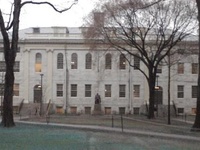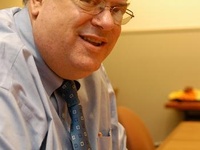Since Kirby’s introductory letter, the UC has pushed for student involvement at every level of the review.
Last year’s UC President Rohit Chopra ’04 struck a deal with the Office for Undergraduate Education that gave the UC a hand in the selection of the student committee members.
From the 100 students who applied for the positions, the UC narrowed the pool to a short list from which Gross chose eight representatives—two for each of the working groups.
But UC President Matthew W. Mahan ’05 says he is still somewhat frustrated by the system.
“I went into it very idealistically, and I thought it was going to be this big representative thing,” Mahan says. “We’re talking about eight people though, spread out over four committees representing 6600 people. Even in numbers there’s no way they can be representative.”
Students on the committees also say that at first their role was ambiguous.
“There’s a little bit of a dichotomy,” says Joseph K. Green ’05, who serves on the group examining pedagogy. “On the one hand we are representatives of the student body, but we’re also just some students who are on the committee. The eight students who are on these committees are not a slice of Harvard—we are people who interested in this stuff.”
And although no students serve on the general steering committee—the “traffic cop” which Mahan says makes all the final decisions—members seem to have found their place alongside the professors.
“I’ve felt treated as a colleague,” says Green. “[Faculty] held my opinion in just as high regard as theirs. There were some areas where we disagreed, and they didn’t just ignore my opinions—they made sure that we were on the same page.”
“It’s been really great working with the faculty,” says Victoria L. Sprow ’06, who serves on the Working Group on Students’ Overall Academic Experience. “We’ve gotten really comfortable with each other, and we can be honest about our opinions. In general it’s good to have those different perspectives because a lot of the time they’re in opposition—but everybody recognizes that what we’re doing is mostly for the students.”
FULL STEAM AHEAD
And more and more students not on committees have begun to get involved.
A panel held by administrators in Emerson Hall last October climaxed with representatives from the Harvard Political Union dispersing into House common rooms with pizza boxes in hand to gather input from students watching the Red Sox-Yankees game.
This type of grassroots activity resumed last month, when Gregory M. Schmidt ’06 and his roommates invited their friends to their room for an informational meeting with Green and Mahan.
The pair fielded questions from those in attendance and brainstormed ways to get more undergraduates educated about the review.
Read more in News
Mahan Unveils New Harvard-Yale Game Plan















